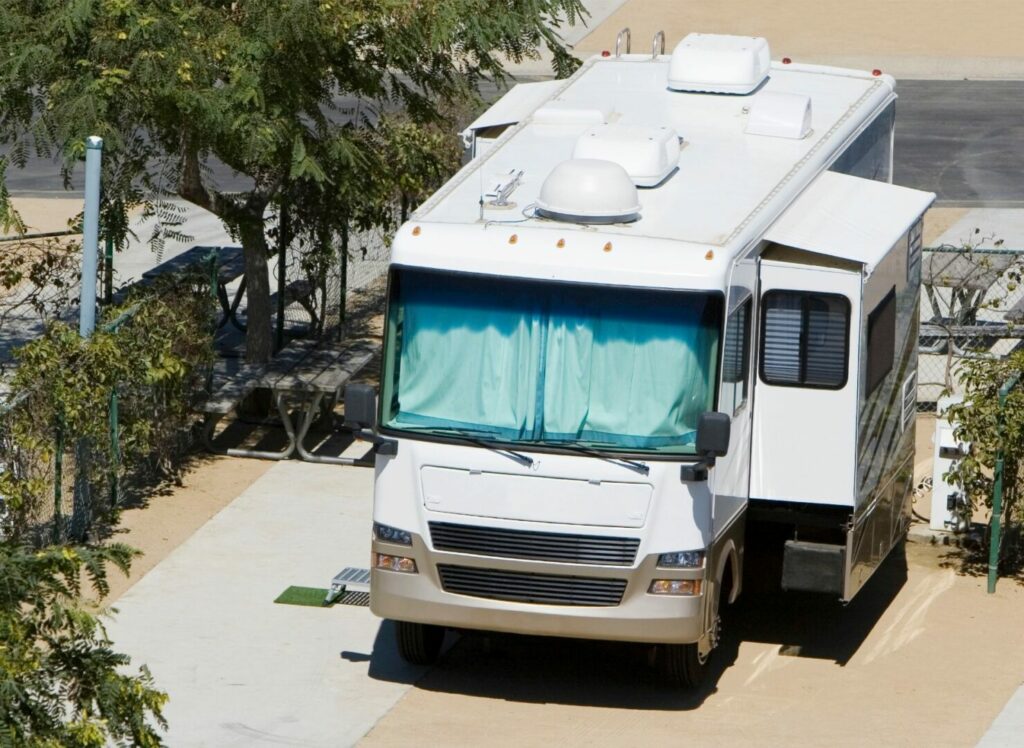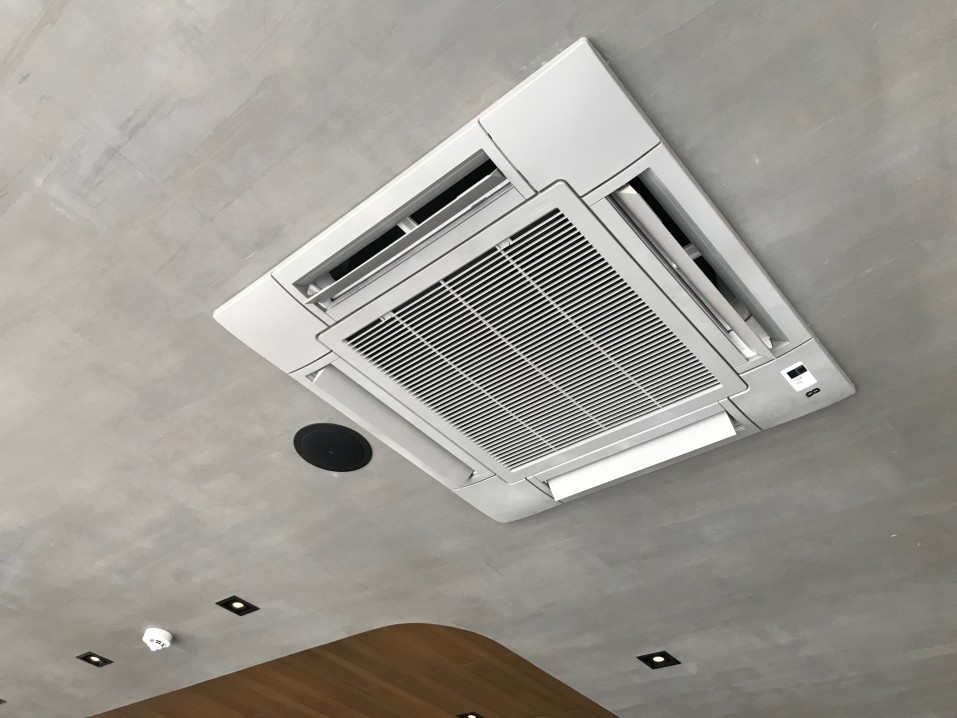Table of Contents Show
An RV can heat up like an oven, so it’s essential to keep it cool in the summer. But those noisy air conditioners can make your sleep unpleasant. That’s why we’ve found the quietest RV air conditioner on the market.
Even if you currently have a factory-installed air conditioning unit in your RV, it’s replaceable. This article looks at the pros and cons of an RV air conditioner and which is the quietest.
Let’s dive in!
What Is an RV Air Conditioner?
An RV air conditioner pushes cool air into your RV through the unit or vents if your RV is ducted. The cooling system is similar to a refrigerator but with higher cooling efficiency. The air conditioner removes the heat from the RV and expels it outside. So the air conditioner also lessens the humidity in your RV.
RV air conditioners have temperature control either on the unit itself or via a thermostat. Most units can only be run on 120V. However, Dometic recently came out with a 12V air conditioner.

The Benefits of an RV Air Conditioner
The apparent benefits of an RV air conditioner are keeping you, your pets, and your RV cool. But additional benefits include reduced mold and mildew thanks to the minimal humidity indoors. When the temperatures are hot outdoors, an RV heats up like a car, and baking in the sun for too long can test the structure’s integrity and create issues, especially if you’re in a humid climate.
An air conditioner creates a more comfortable atmosphere for humans and pets inside the RV. It can also help keep your RV clean without open windows. And if you suffer from allergies or are in a particularly dusty area, it’s helpful to keep the windows shut while still staying cool.
Did You Know? Mold and mildew are just some of the things in your RV that might be making you sick.
The Disadvantages of an RV Air Conditioner
One of the most significant disadvantages of an RV air conditioner is the noise. They tend to have the kind of background noise that you find impossible to drown out. That’s why we’ve been on the search for the quietest RV air conditioner.
Other disadvantages include the type of air conditioning system you have in your RV. If it’s ductless, the unit constantly runs when it’s on. In contrast, ducted systems have on-demand auto-control temperature settings. A continuously running AC unit can be annoying if it’s noisy and draws excess electricity.

Are RV Air Conditioners Loud?
Yes, RV air conditioners are notoriously loud. Unlike a home air conditioning unit that sits on the ground outside your house, an RV air conditioner is on the roof. As a result, every vibration the appliance makes reverberates throughout the RV. In addition, the fan motor is right above your head in a small space.
Which RV Air Conditioner Is the Quietest?
Manufacturers continuously work on new technology and innovations. Dometic listened to customers and has come out with one of the quietest RV air conditioners. Here it is:
The Dometic Air Conditioner H551916AXX1J0 Blizzard Nxt HP
- EFFICIENT COOLING & HEATING RV UNIT:The Blizzard NXT 15K BTU AC System delivers high-capacity air conditioning to keep...
- ATTRACTIVE AND AERODYNAMIC DESIGN: The sleek, aerodynamic design of this rooftop AC not only looks great but also...
Dometic’s H551916AXX1J0 Blizzard Nxt HP has vibration isolation which minimizes compressor noise. The unit can be ducted or non-ducted. It also has a heat pump to use for heating or cooling.
In addition, there’s a composite base pan and high-impact polypropylene injection-molded shroud, rated for high impact. And it uses less sheet metal than other models, which improves performance and helps reduce noise.
It costs a little over $1700 and weighs 92 pounds.
Pro Tip: Regularly clean your RV air conditioning filter to keep it running at maximum efficiency.
How Do I Make My AC Sound Quieter?
Without replacing your air conditioner with a quieter model, there are a couple of ways to help reduce its noise. Fan motors in older units can break or develop significant wear and tear. Replacing the motor may help quiet the unit. Check for loose fittings if you hear rattling when your air conditioning is running. This could lessen some of the noise as well.
Which RV Air Conditioner Is the Best?
Dometic seems to be at the top of the RV AC innovations. Their Brisk II Evolution 13.5k gets a lot of applause in the RV community. The unit has a cooling capacity of 13,500 BTU and can be ducted or non-ducted. It’s a high-performance air conditioner with larger air openings for improved airflow and cooling from previous models.
Other brands that are worth looking into include Coleman and Furrion. Each has its pros and cons. If you have an older air conditioner in your RV, consider swapping it out with a new model. You can do it yourself or have a professional make the change for you. Just remember to do your research, measure, and measure again!

Are RV Air Conditioners Worth It?
RV air conditioners are essential, in our opinion. While opening the windows for cross-ventilation is helpful, having a cooling system to bring down the interior temperature and lessen humidity is ideal. And having the quietest RV air conditioner possible provides a more comfortable and relaxing atmosphere.
Are you considering replacing a noisy air conditioner on your RV?
Last update on 2024-07-26 / Affiliate links / Images from Amazon Product Advertising API







